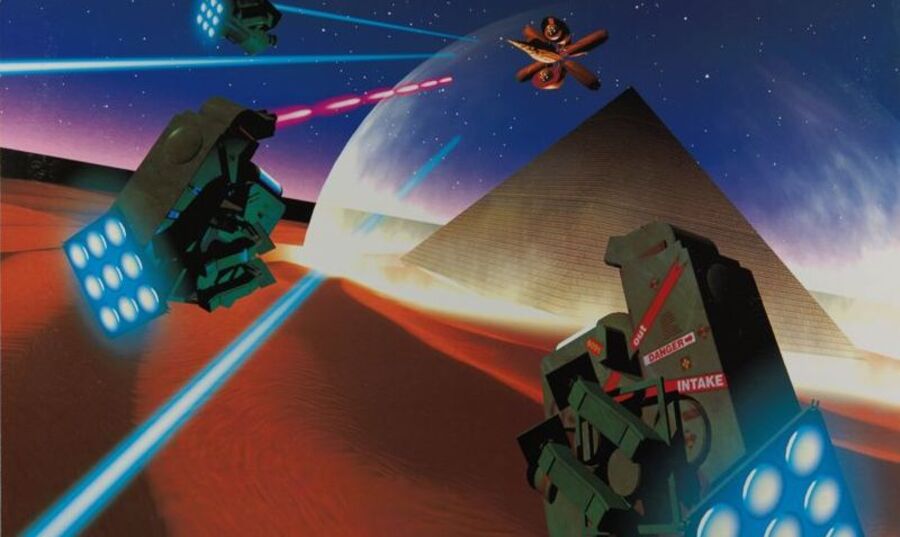
In 1993, Sega partnered with the Japanese multinational Pioneer Corporation to release a new module for its LaserActive home entertainment system in Japan and North America.
This exciting and technologically impressive add-on featured support for standard Sega Mega Drive / Genesis cartridges and Sega CD discs, and allowed LaserActive owners to play and experience a bunch of additional "Mega LD"-compatible games at home. These were games that contained jaw-dropping visuals that took advantage of the LaserActive's Laser-Disc playing abilities to present graphics far beyond what the regular Sega Mega Drive / Genesis system was capable of.
If you're a Sega fan and wondering why you've never heard of it, the reason pretty much comes down to the cost of the set up. Because of the high price of acquiring all the different parts ($970 for the base LaserActive unit; $600 for the Sega module), it never quite caught on with gamers, with the technology simply being too far outside what most people were willing to pay at the time for a home entertainment system. As a result, it has somewhat faded from memory, being remembered only by hardcore collectors and admirers of the technology.
In the past, there's been a huge amount of time and effort spent to try and preserve these games to make sure they don't become lost forever, but up until recently, there's been no way of playing them in modern-day emulators, with real hardware pretty much being the only way to go. We say "recently", as earlier this month, a user going by the name RogerSanders released a new fork of the emulator Ares, finally introducing support for the obscure format and giving people a way to experience the games without shelling over a ton of cash (thanks VideoGameEsoterica for the spot).
According to the creator, the emulator was "built from extensive reverse-engineering of the register interface of the Pioneer PD6103A IC" on real hardware using a tool called the MegaLDRegEditor, and can emulate "most aspects of the hardware [...] fully and correctly at this time". There are, however, some bugs that will likely exist, alongside other features that remain to be implemented.
The idea is to tidy the code up and eventually merge it upstream into the regular version of Ares so that people won't need a separate custom setup.
Sadly, there's no word on any similar kind of emulation effort for the NEC LD-ROM² module and its games, as far as we're aware.
